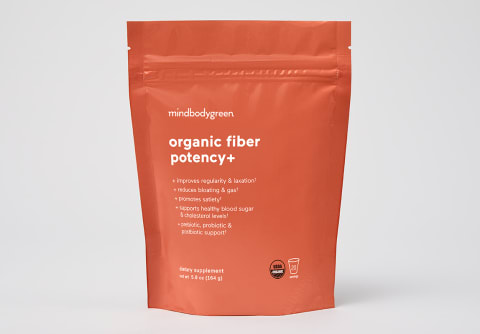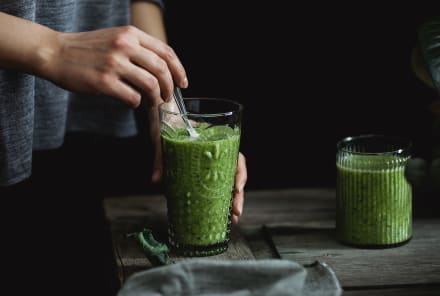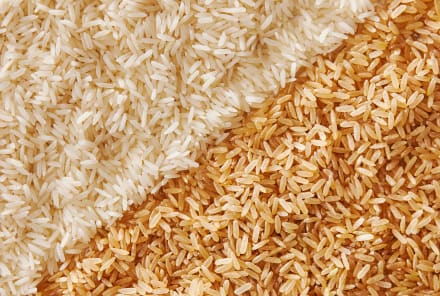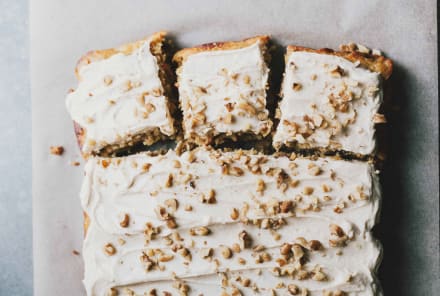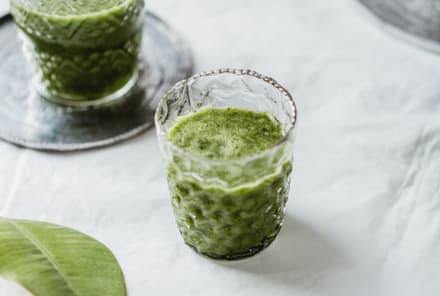Advertisement
Feed Your Gut & Fend Off Stress With The Psychobiotic Diet

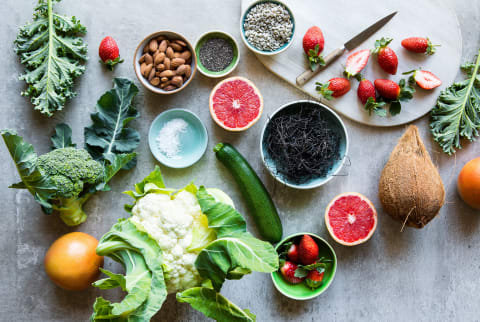
For some time now, researchers have known that food influences our mental well-being. However, most studies on nutritional interventions for neurological health have focused on single foods rather than realistic, whole-dietary approaches.
That's exactly why scientists from Cork, Ireland, set out to see if a psychobiotic diet designed to promote gut health has a positive influence on mental well-being1 with a new randomized controlled study (RCT) from Molecular Psychiatry.
What is a psychobiotic diet?
A term coined by study co-authors Timothy "Ted" Dinan, Ph.D., and John Cryan, Ph.D., the psychobiotic diet leans into the gut-brain axis by prioritizing gut-healthy foods known to support gut microbial balance (i.e., whole grains, prebiotic fruits and vegetables, legumes, and fermented foods) and discourages the consumption of sweets, sugary drinks, and processed foods.
The study diet included:
- 6-8 daily servings of fruits and veggies high in prebiotic fibers (e.g., apples, bananas, leeks, onions)
- 5-8 daily servings of whole grains (e.g., oats, whole wheat, quinoa)
- 2-3 daily servings of fermented foods (e.g., sauerkraut, kefir, kombucha)
- 3-4 weekly servings of legumes (e.g., chickpeas, lentils, peas)
The psychobiotic diet study design.
The study included 45 healthy adults (ages 18-59) with suboptimal dietary habits.
The study group was given information on the components of the psychobiotic diet and asked to follow it as closely as possible. The control group was given minimal lessons on general nutrition (rather than psychobiotic-focused lessons).
Researchers examined fecal microbiota composition and function, stress, overall health and diet, and a metabolic profiling of blood, urine, and fecal samples, both before and after the four-week trial period for both groups.
How a psychobiotic diet influences mental well-being.
Participants following the psychobiotic diet experienced a greater reduction in perceived stress. Although there was no significant difference of stress response between the control and study group, higher adherence to the study diet resulted in stronger decreases in perceived stress.
While changes in gut microbial composition were subtle for the study group, significant changes in 40 specific fecal lipids (thanks to a reduction in total dietary fat and increase in monounsaturated fats) and urinary tryptophan metabolites (an essential amino acid vital to key protein synthesis and healthy inflammatory response) were also observed.
The takeaway.
In just four weeks, participants following a psychobiotic diet rich in high-fiber and fermented foods experienced lower perceived stress levels, healthier bowel movements, healthier inflammatory metabolite profiles, and slightly improved microbial composition and function.
If you're looking for an easy and effective way to add more prebiotic fiber, probiotics, and postbiotic support to your diet, consider a high-quality fiber supplement like mindbodygreen's organic fiber potency+.* This innovative formula delivers comprehensive gut support via 6 grams of dietary fiber from organic legumes, fruits, and vegetables (i.e., guar bean, kiwifruit, and a trio of mushrooms), plus the unique and resilient spore-forming probiotic strain Bacillus subtilis ATCC122264.*
Simply add a scoop to your favorite food or beverage daily to promote digestion and regularity!* Your gut-brain axis and mental well-being will thank you.
Watch Next
Enjoy some of our favorite clips from classes
Enjoy some of our favorite clips from classes
What Is Meditation?
Mindfulness/Spirituality | Light Watkins
Box Breathing
Mindfulness/Spirituality | Gwen Dittmar
What Breathwork Can Address
Mindfulness/Spirituality | Gwen Dittmar
The 8 Limbs of Yoga - What is Asana?
Yoga | Caley Alyssa
Two Standing Postures to Open Up Tight Hips
Yoga | Caley Alyssa
How Plants Can Optimize Athletic Performance
Nutrition | Rich Roll
What to Eat Before a Workout
Nutrition | Rich Roll
How Ayurveda Helps Us Navigate Modern Life
Nutrition | Sahara Rose
Messages About Love & Relationships
Love & Relationships | Esther Perel
Love Languages
Love & Relationships | Esther Perel
